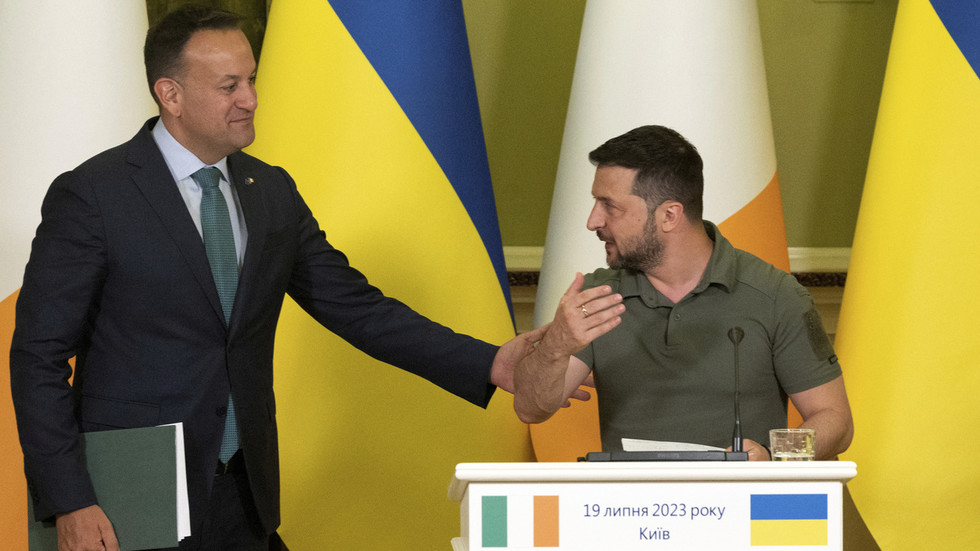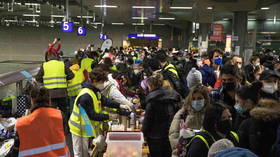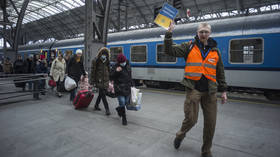
More than 70,000 Ukrainians are receiving state-funded accommodation in Ireland

FILE PHOTO: Ireland’s Prime Minister Leo Varadkar and Ukraine’s President Vladimir Zelensky attend a joint news conference in Kiev, July 19, 2023 © Clodagh Kilcoyne / Pool via AP
The Irish government is considering whether to limit the time Ukrainian refugees can remain in public housing, proposing a three-month cut-off amid growing shortages, according to the Irish Examiner. Asylum-seekers would be required to cover their own costs after that period.
While tens of thousands of Ukrainians have been permitted to remain in hotels and hostels indefinitely at taxpayer expense – costing some €1.5 billion per year – the policy change would force refugees to provide for themselves after a period of three months, the Examiner reported on Monday.
Should the measure be implemented, asylum-seekers would be required to look to the private rental market for housing, or go through the “offer-a-home” scheme, under which the government pays landlords €800 per month in order to use one of their properties.

According to the Examiner, the government will sell the upcoming change as a way to encourage Ukrainians to “integrate into society quickly,” though the outlet suggested it may be a tactic to “discourage more Ukrainians from seeking accommodation in Ireland as officials continue to struggle on a weekly basis to find adequate accommodation.”
The new restrictions would “bring Ireland’s offering in line with other EU countries,” a government source told the newspaper. A number of states in the bloc currently offer between 90 and 180 days of state-funded accommodation, requiring payment after that point.
However, some critics have already offered push-back to the proposal, with another unnamed official voicing concern that it could “add to the homelessness figures” in Ireland, per the Examiner. A spokesperson for a group representing Ukrainians living in the country, Kate Durrant of the Community Response Forum, also said the plan is “not at all feasible,” adding “it’s completely utopian as far as I can see.”

A spokesperson for Ireland’s department of integration later told Reuters that no final decision had been made, and that the move remains under review, but stressed the need to find a more sustainable approach more in line with other EU members.
The Irish government says it has taken in nearly 100,000 Ukrainians since the conflict with Russia erupted in February 2022 – or about 1.6% of the Ukrainian refugees in Europe – and has placed some 72,000 in state-funded accommodations. The total cost for housing the displaced people is expected to soar to €2.5 billion by next year, topping the current figure by nearly €1 billion.




